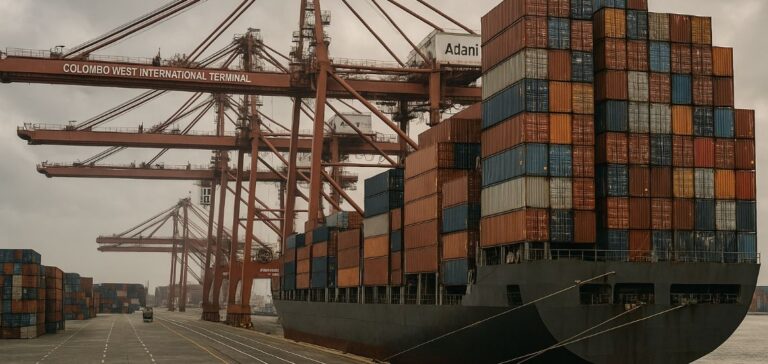Adani, through its subsidiary Adani Ports and Special Economic Zone Ltd. (APSEZ), has officially commenced operations at the Colombo West International Terminal (CWIT), located at Colombo Port in Sri Lanka. The project, representing an investment of USD 800mn, was implemented under a public–private partnership between APSEZ, Sri Lankan conglomerate John Keells Holdings PLC and the Sri Lanka Ports Authority, under a 35-year Build, Operate, and Transfer (BOT) agreement.
With a quay length of 1,400 metres and a depth of 20 metres, CWIT is designed to handle up to 3.2mn Twenty-foot Equivalent Units (TEUs) annually. It is the first fully automated deep-water terminal at Colombo Port. The infrastructure is intended to enhance cargo handling speed, reduce vessel turnaround times and strengthen Colombo’s competitiveness as a regional transshipment hub.
Logistics modernisation and economic impact
Construction work began in early 2022 and progressed rapidly. Most of the technological infrastructure is now in place, positioning CWIT as a future benchmark for operational efficiency in South Asian maritime logistics.
Gautam Adani, Chairman of the Adani Group, stated that the terminal marks a significant step in regional cooperation between India and Sri Lanka. He highlighted its potential to generate several thousand direct and indirect jobs while contributing to the creation of economic value for Sri Lanka’s economy.
Regional consortium and strategic ambitions
Krishan Balendra, Chairperson of John Keells Holdings PLC, noted that the project is among the largest private-sector investments in Sri Lanka. He affirmed that the infrastructure will improve commercial connectivity and raise Sri Lanka’s visibility in global trade, in partnership with the Sri Lanka Ports Authority and the Adani Group.






















